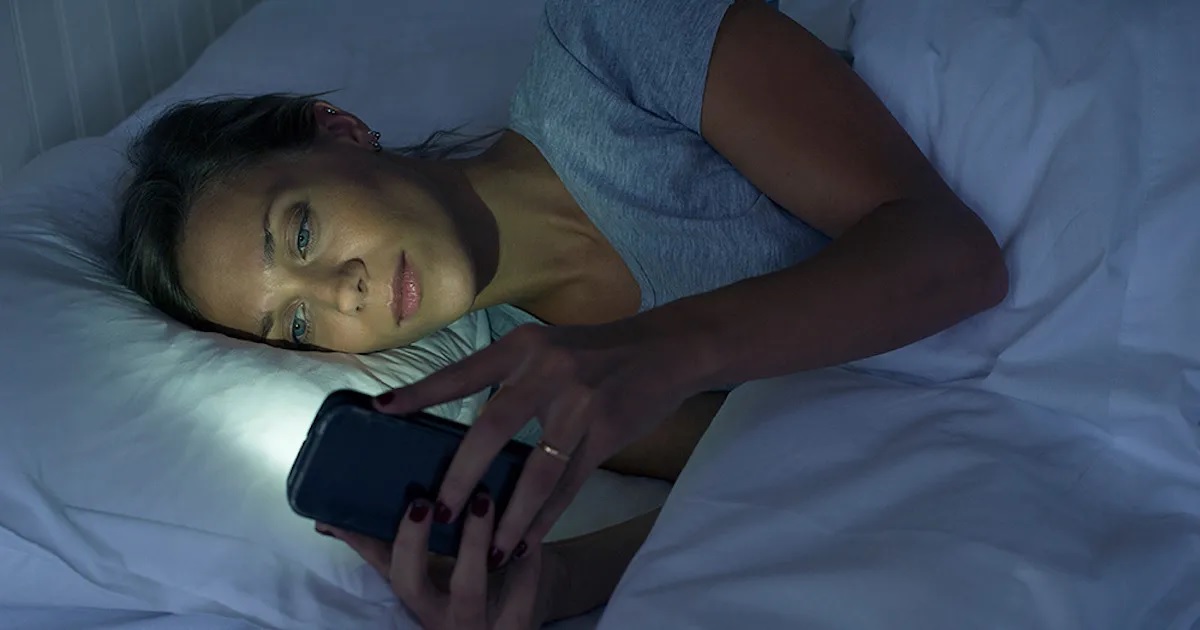In our technology-driven age, where screens and gadgets are omnipresent, the impact of technology on our sleep has become a growing concern. The glow of smartphones, the hum of computers, and the allure of binge-watching can interfere with our natural sleep patterns. In this article, we’ll explore the ways in which technology affects our sleep and provide practical strategies for improving our nightly rest.
- Understanding the Impact of Blue Light: One of the primary culprits disrupting sleep is the blue light emitted by screens. Exposure to this type of light suppresses the production of melatonin, the hormone responsible for regulating sleep-wake cycles. As a result, screen time close to bedtime can interfere with the body’s ability to wind down.
- Establishing a Digital Curfew: To mitigate the impact of blue light, consider establishing a digital curfew at least an hour before bedtime. This means putting away smartphones, tablets, and computers, allowing your brain to naturally transition into a state conducive to sleep. Engage in relaxing activities such as reading a physical book or practicing gentle stretching during this digital-free time.
- Utilizing Night Mode and Blue Light Filters: Many devices now offer features like Night Mode or blue light filters. Activating these settings in the evening reduces the amount of blue light emitted, minimizing its disruptive effects on melatonin production. Make it a habit to enable these features as part of your evening routine.
- Mindful Screen Choices: Opt for screens with warmer tones when possible. Some e-readers and devices allow you to customize the color temperature, reducing the intensity of blue light. This subtle shift can make a significant difference in promoting better sleep.
- Creating a Sleep-Inducing Environment: The sleep environment plays a crucial role in the quality of your rest. Dim the lights in your bedroom as bedtime approaches to signal to your body that it’s time to wind down. Invest in blackout curtains to block out external light sources, creating a conducive atmosphere for restful sleep.
- Limiting Stimulating Content: Engaging with stimulating or stressful content close to bedtime can activate the mind, making it difficult to relax. Avoid watching intense movies, reading news articles, or participating in heated discussions online before heading to bed.
- Investing in Blue Light Blocking Glasses: For those who cannot entirely avoid screens before bedtime, blue light blocking glasses can be a valuable investment. These glasses filter out a significant portion of blue light, helping to preserve melatonin production and minimize sleep disruption.
- Establishing a Consistent Sleep Schedule: Our bodies thrive on routine, and establishing a consistent sleep schedule is a powerful tool for improving sleep quality. Aim to go to bed and wake up at the same time each day, even on weekends. This helps regulate your body’s internal clock, promoting a more restful sleep.
- Unplugging from Alerts and Notifications: The constant barrage of notifications can be a sleep disruptor. Consider turning off non-essential alerts and notifications during your designated wind-down time to minimize disruptions and foster a more tranquil pre-sleep atmosphere.
- Prioritizing Relaxation Techniques: Incorporate relaxation techniques into your bedtime routine, such as deep breathing, meditation, or gentle stretching. These practices can help calm the mind and signal to the body that it’s time to transition into a state of rest.
In conclusion, while technology is an integral part of our lives, being mindful of its impact on sleep is crucial for overall well-being. By adopting these practical strategies, you can navigate the digital landscape and cultivate a sleep-friendly environment, ensuring a more rejuvenating and restful night’s sleep.






